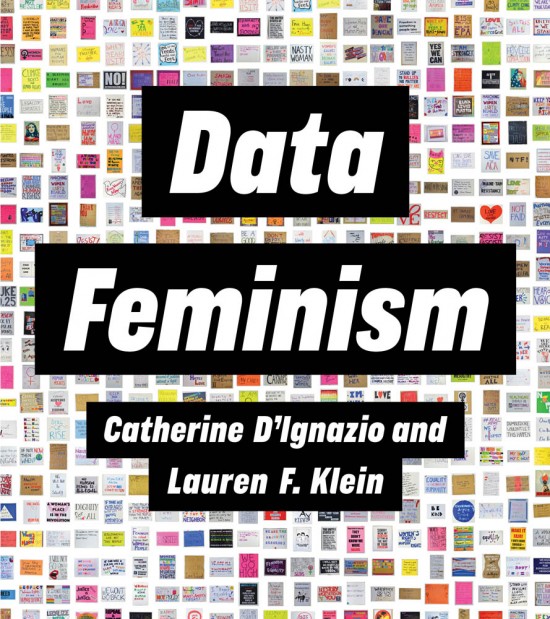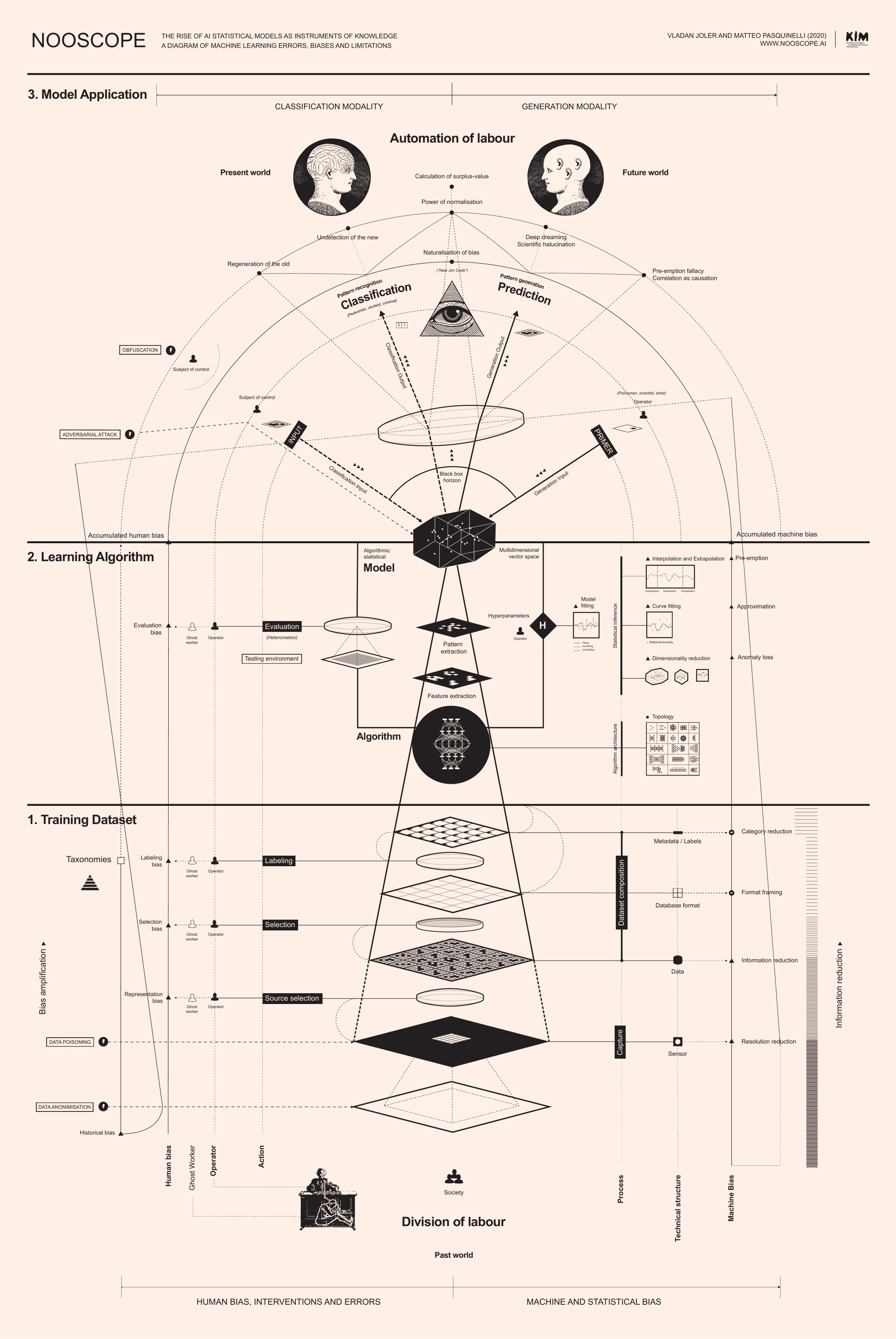Catherine D’Ignazio, Lauren F. Klein: Data Feminism (2020)
Filed under book | Tags: · big data, data, data visualisation, emotion, feminism, gender, identity, labour, racism, research, science, statistics

“Today, data science is a form of power. It has been used to expose injustice, improve health outcomes, and topple governments. But it has also been used to discriminate, police, and surveil. This potential for good, on the one hand, and harm, on the other, makes it essential to ask: Data science by whom? Data science for whom? Data science with whose interests in mind? The narratives around big data and data science are overwhelmingly white, male, and techno-heroic. In Data Feminism, Catherine D’Ignazio and Lauren Klein present a new way of thinking about data science and data ethics—one that is informed by intersectional feminist thought.
Illustrating data feminism in action, D’Ignazio and Klein show how challenges to the male/female binary can help challenge other hierarchical (and empirically wrong) classification systems. They explain how, for example, an understanding of emotion can expand our ideas about effective data visualization, and how the concept of invisible labor can expose the significant human efforts required by our automated systems. And they show why the data never, ever “speak for themselves.”
Data Feminism offers strategies for data scientists seeking to learn how feminism can help them work toward justice, and for feminists who want to focus their efforts on the growing field of data science. But Data Feminism is about much more than gender. It is about power, about who has it and who doesn’t, and about how those differentials of power can be challenged and changed.”
Publisher MIT Press, 2020
strong Ideas series
Creative Commons CC BY-NC-ND license
ISBN 9780262044004, 0262044005
xii+314 pages
Interviews with authors: Jason Forrest (Nightingale, 2019), Zoë Corbyn (The Guardian, 2020).
Book website
Author
Publisher
WorldCat
HTML (updated on 2021-10-18)
PDF (39 MB)
Vladan Joler, Matteo Pasquinelli: The Nooscope Manifested: AI as Instrument of Knowledge Extractivism (2020)
Filed under essay | Tags: · algorithm, artificial intelligence, automation, data, knowledge, machine learning, statistics
“The Nooscope is a cartography of the limits of artificial intelligence, intended as a provocation to both computer science and the humanities. Any map is a partial perspective, a way to provoke debate. Similarly, this map is a manifesto — of AI dissidents.”
“The Nooscope is a visual manifesto of AI as instrument of knowledge extractivism. The Nooscope is also an experiment in academic publication and critical tools for AI studies. The large diagram and the essay can be browsed online or downloaded in PDF format and printed on a large scale.”
Publisher KIM research group, Karlsruhe University of Arts and Design, Karlsruhe, and Share Lab, Novi Sad, 1 May 2020
Open access
Diagram & Essay HTML
Diagram PDF
Essay PDF
Max Bense: aesthetica IV. Programmierung des Schönen. Allgemeine Texttheorie und Textästhetik (1960) [German]
Filed under book | Tags: · aesthetics, information theory, literary theory, statistics, text, theory

“Max Benses informationeile Ästhetik schließt mit einer Allgemeinen Texttheorie ab, die, auf der Grundlage statistischer Untersuchungen von Fucks, Herdan, Mandelbrot u. a., als Modell der neuen statistischen Zeichen-Ästhetik aufgefaßt werden kann.
Die Allgemeine Texttheorie bezieht sich auf jede Art von Text, schließt also die ästhetische Theorie der Poesie und Prosa, aber auch der wissenschaftlichen Sprachen, Werbesprachen und abstrakten Sprachen usw. ein.
Der Begriff Text wird dabei als derjenige sprachliche Zustand aufgefaßt, der statistische bzw. informationelle, semantische bzw. ästhetische Formen meint, aus deren Materialität Poesie und Prosa im klassischen Sinne erst hervorgehen. Der Begriff Text zielt also nicht auf vorästhetische Zustände der Sprache ab, sondern auf vorpoetische und vorprosaische. Er bestimmt gewissermaßen die archaischen theoretischen Fundamente der Literatur.
Allgemeine Texttheorie umfaßt also Textstatistik, Textsemantik, Textphänomenologie und Textästhetik. Der bisher völlig unklar oder falsch verwendete Ausdruck Logik der Dichtung verschwindet zugunsten des genau formulierbaren Ausdrucks Textsemantik, der den Begriff Textlogik mit umfaßt.
Es werden also sowohl numerische wie essentielle Überlegungen zum Begriff Text angestellt.
Die Allgemeine Texttheorie erscheint als Grundlagenforschung für zukünftige Literaturwissenschaft und Literaturtheorie. Sie will exakte Mittel einführen und der beliebigen üblichen Interpretation, soweit sie nicht historische Fakten herausstellt, ein Ende bereiten.” (from the dusk jacket)
Publisher Agis, Baden-Baden and Krefeld, 1960
128 pages
via Mitchell Johnson
Commentary: Reinhard Döhl (n.d., DE).
Comment (1)

